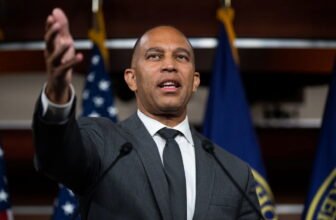
August 29, 2025
Nigeria issues a temporary ban on the export of raw shea nut to boost profits.
Nigeria has imposed a six-month ban on raw shea nut exports to strengthen its position as a global supplier of the key cosmetic ingredient.
Nigeria’s Vice President Kashim Shettima announced the six-month ban on Aug. 26, emphasizing it aims to increase income and jobs for rural farmers, not to spark a trade war, the Associated Press reports. The policy will be reviewed following the six-month ban.
“The ban will transform Nigeria from an exporter of raw shea nut to a global supplier of refined shea butter, oil, and other derivatives,” Shettima said at the State House in the capital of Abuja.
The ban is not an “anti-trade policy but a pro-value addition policy designed to secure raw materials for our processing factories,” he added.
Raw shea nuts, when processed, produce shea butter, a key ingredient in lotions, shampoos, conditioners, and moisturizers. Nigeria joins other West African nations, including Burkina Faso, Mali, Togo, the Ivory Coast, and Ghana, which have restricted or banned shea nut exports over the past two years.
“It is one of the most important bases for skincare, especially now that a lot of people are tilting toward nontoxic skincare,” said Zainab Bashir, an Abuja-based dermatologist.
It’s a strategic power move in response to Nigeria producing 40% of the world’s raw shea nuts yet accounting for only 1% of the $6.5 billion global shea products market, Shettima explained. The measure aims to boost profits, the BBC reports, as Nigeria loses out by producing relatively little shea butter locally.
“The ban seems to suggest that the government has identified a supply-gap issue, but an export ban does little actually to lock in current in-country production solely for Nigerian processors,” said Ikemesit Effiong, a partner at SBM Intelligence, a Lagos-based risk advisory firm.
The move follows the opening of one of Africa’s largest shea butter processing plants in northern Niger state. Nigeria’s export ban could generate $300 million in the short term and $3 billion by 2027, according to officials.
”It is about industrialization, rural transformation, gender empowerment and expanding Nigeria’s global trade footprint,” Shettima said.
The decision appears to be the direct opposite of President Bola Tinubu’s long-standing free-market approach, which has involved removing subsidies on essential commodities like fuel and electricity.
RELATED CONTENT: Healing A Generation: The Intertwined Crisis Of Black Maternal Mental Health And Infant Well-Being






